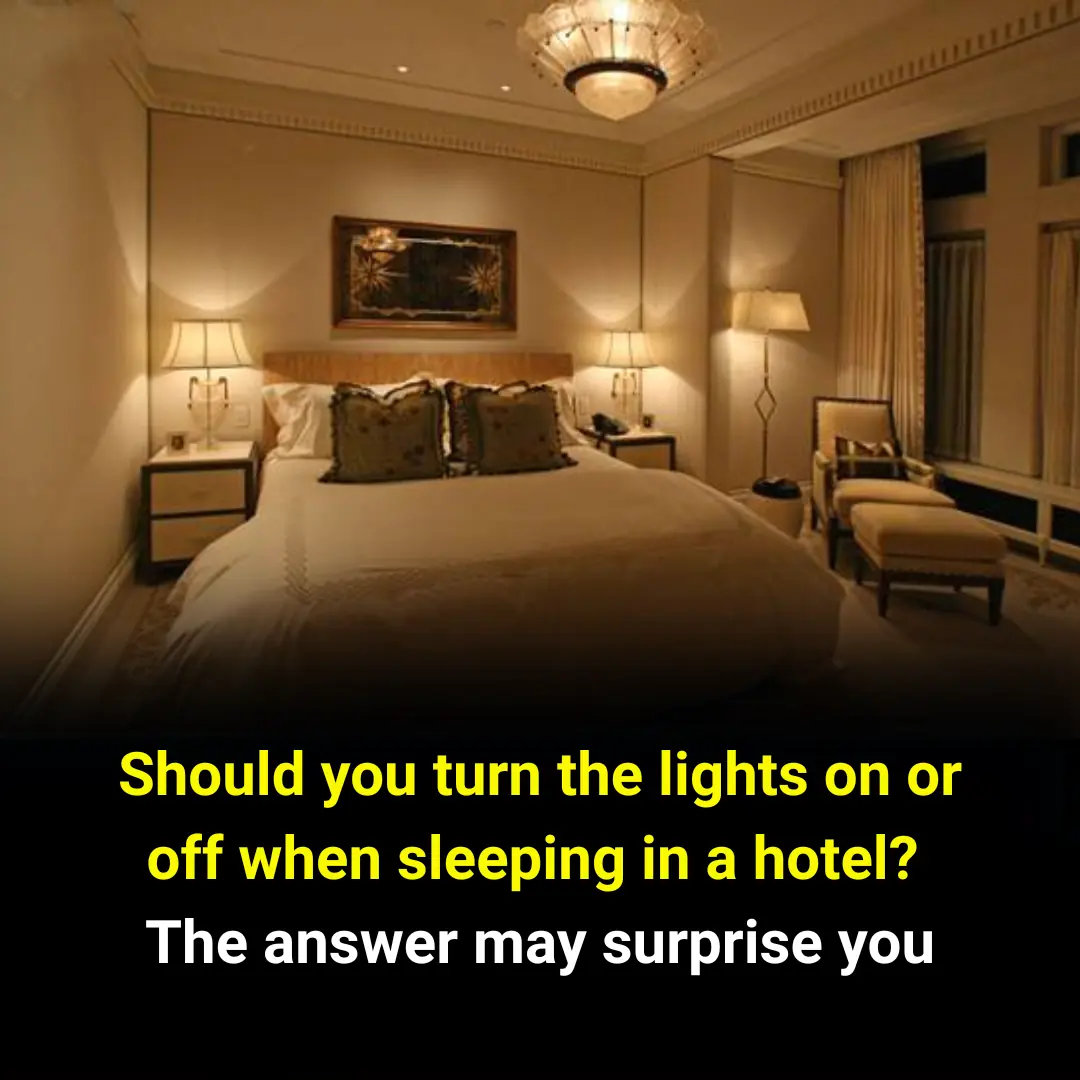
Should you turn the lights on or off when sleeping in a hotel?

Should You Turn the Lights On or Off When Sleeping in a Hotel? The Answer May Surprise You
When staying in a hotel, one of the small decisions you may face is whether to leave the lights on or turn them off before going to sleep. It might seem like a trivial matter, but it turns out that the answer could have a surprising impact on your quality of sleep.
Why the Right Lighting Matters
The quality of your sleep is influenced by a variety of factors, and lighting plays a crucial role. Your body’s internal clock, or circadian rhythm, responds to light and dark, signaling when it’s time to wake up and when it’s time to rest. A poorly lit room or excessive lighting at night can disrupt this natural rhythm and negatively impact your sleep.
Should You Leave the Light On?
Leaving the lights on in your hotel room may make you feel safer, especially if you're unfamiliar with your surroundings or are concerned about security. However, experts generally advise against leaving the lights on while you sleep, as exposure to artificial light, even at low levels, can interfere with the production of melatonin, the hormone responsible for making you feel sleepy.
If you're in a hotel and are used to complete darkness to sleep, the presence of even a small amount of light can make it more difficult for you to fall asleep and stay asleep throughout the night. It can also affect the quality of REM (Rapid Eye Movement) sleep, which is essential for feeling rested and rejuvenated.
Should You Turn the Lights Off?
Turning the lights off in your hotel room is the best choice if you’re aiming for a good night’s sleep. A completely dark room signals to your brain that it’s time to rest, helping you fall asleep faster and enjoy deeper, more restorative sleep.
However, if you’re concerned about security or feel uncomfortable sleeping in total darkness, a better alternative is to use a dim night light or a light with a timer. This provides some light for safety without interfering too much with your body’s natural sleep cycle.
What About a Night Light?
If you're in a hotel and don't want to sleep in complete darkness, a night light is a good compromise. Make sure it’s dim enough not to disrupt your circadian rhythm but bright enough to provide a sense of security. Some travelers prefer a red or orange night light, as these colors are less likely to interfere with melatonin production compared to blue or white lights.
Conclusion
While it may feel comforting to leave the lights on in your hotel room, turning them off will likely improve your sleep quality by allowing your circadian rhythm to work naturally. If you’re not comfortable with total darkness, consider using a low-level night light to balance both safety and sleep quality.
So, the answer may surprise you: Turn the lights off for a better night’s rest and more restful sleep during
News in the same category


Is Tightly Wrapped or Loosely Wrapped Cabbage Better?

10 Visible Signs of Liver Damage You Can Spot with the Naked Eye

5 Things You Should Never Put in the Washing Machine

6 Vegetables That Help Detoxify the Body and Lower Liver Enzymes

When Installing an Air Conditioner, Avoid These 4 Spots to Protect Your Family’s Health

Are two-headed snakes real? Why does this phenomenon occur?

For the Sake of Your Family’s Health, I Strongly Urge You to Get Rid of These 10 Items

Should you brush your teeth before or after breakfast

5 diseases that cause stomach pain after eating

More Than Just Leaves: The Hidden Healing Power of Fish Mint Roots

Don’t Dismiss This “Rustic” Dish – It’s a Stomach Healer and a Breakfast Hero!

Should you plug the phone in first or the charger first?

The “Dark Secret” of Thermos Bottles: Most People Use Them Without Knowing the Risks

"King of herbs" is good for the heart and breaks down kidney stones

Sick pork can be used as fish feed, just "cook it and it's done": What do experts say?

Should you drink water that has been left overnight and uncovered?

What the small hole on a kn.ife is for?

Think Salmon Is the King of Omega-3? Think Again—This Humble Supermarket Fish Takes the Crown
News Post

10 Brilliant Uses For Eggshells In Your Garden

What To Eat During Your Period: Foods That Help Reduce Cramps and Foods To Avoid

5 Tips to Grow Basil Like a Boss

RM, V, Jung Kook, and Jimin will soon be discharged from the military

5 habits to prevent colorectal can:cer

What is the disease of irregular fast and slow heartbeat?

How many eggs should you eat a week?

What happens when joints degenerate?

Potential way to cure HIV permanently found

What happens when you eat too much saturated fat?

Transform your garden with the magic of turmeric!

Japanese Doctor Reveals 3 Everyday Foods That Naturally Boost Immunity and Reduce Frequent Illness

Is Tightly Wrapped or Loosely Wrapped Cabbage Better?

3 Common Mistakes When Eating Shrimp That Strip Away All Its Nutrients — Especially the Second One

Can.cer May Reveal Itself Through These 2 Nighttime Warning Signs — Everyone Should Be Aware

When Buying Shrimp, Be Extra Cautious to Avoid These 5 Types of Harmful “Hormone Shrimp”

10 Visible Signs of Liver Damage You Can Spot with the Naked Eye

5 Things You Should Never Put in the Washing Machine
